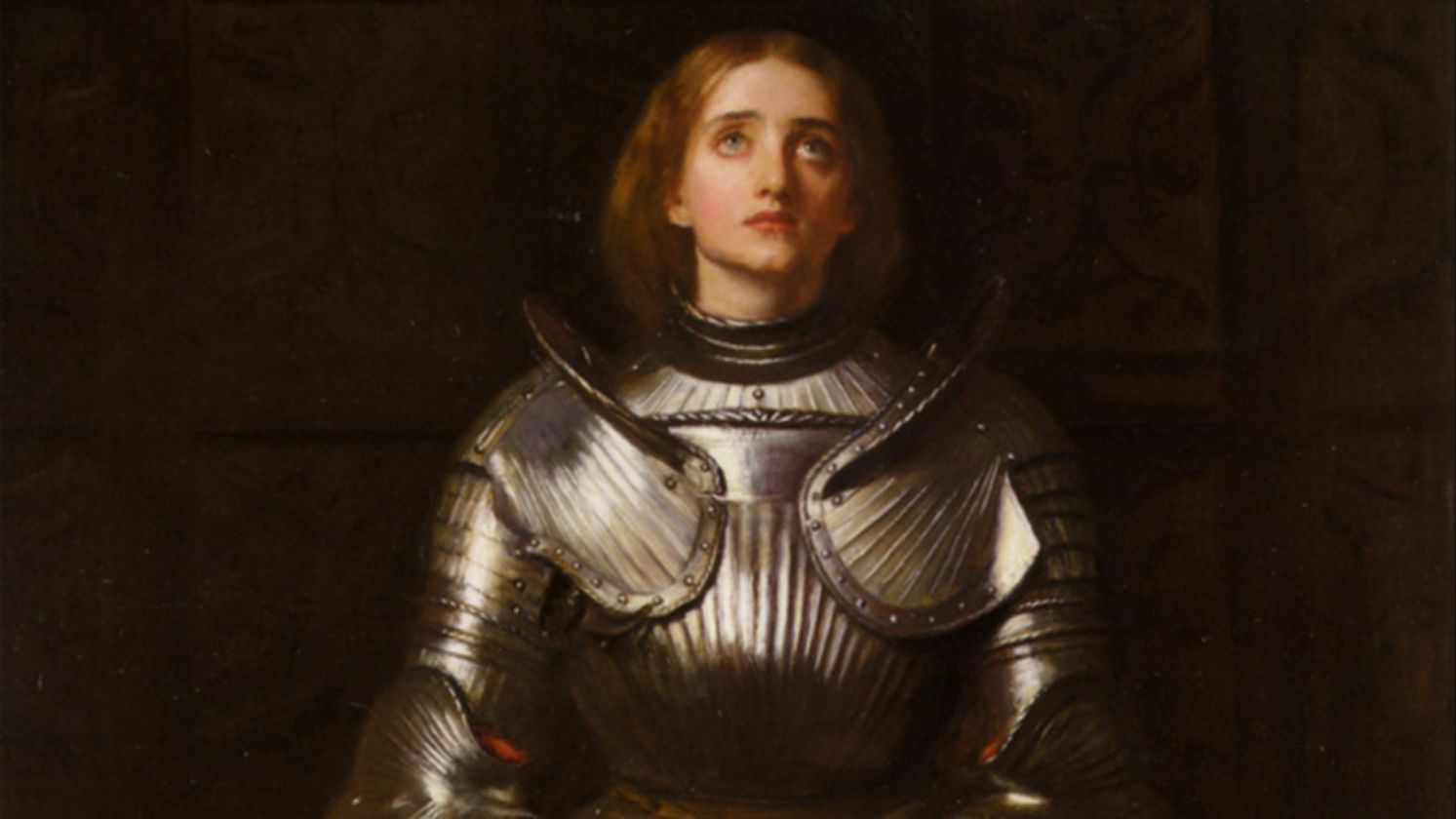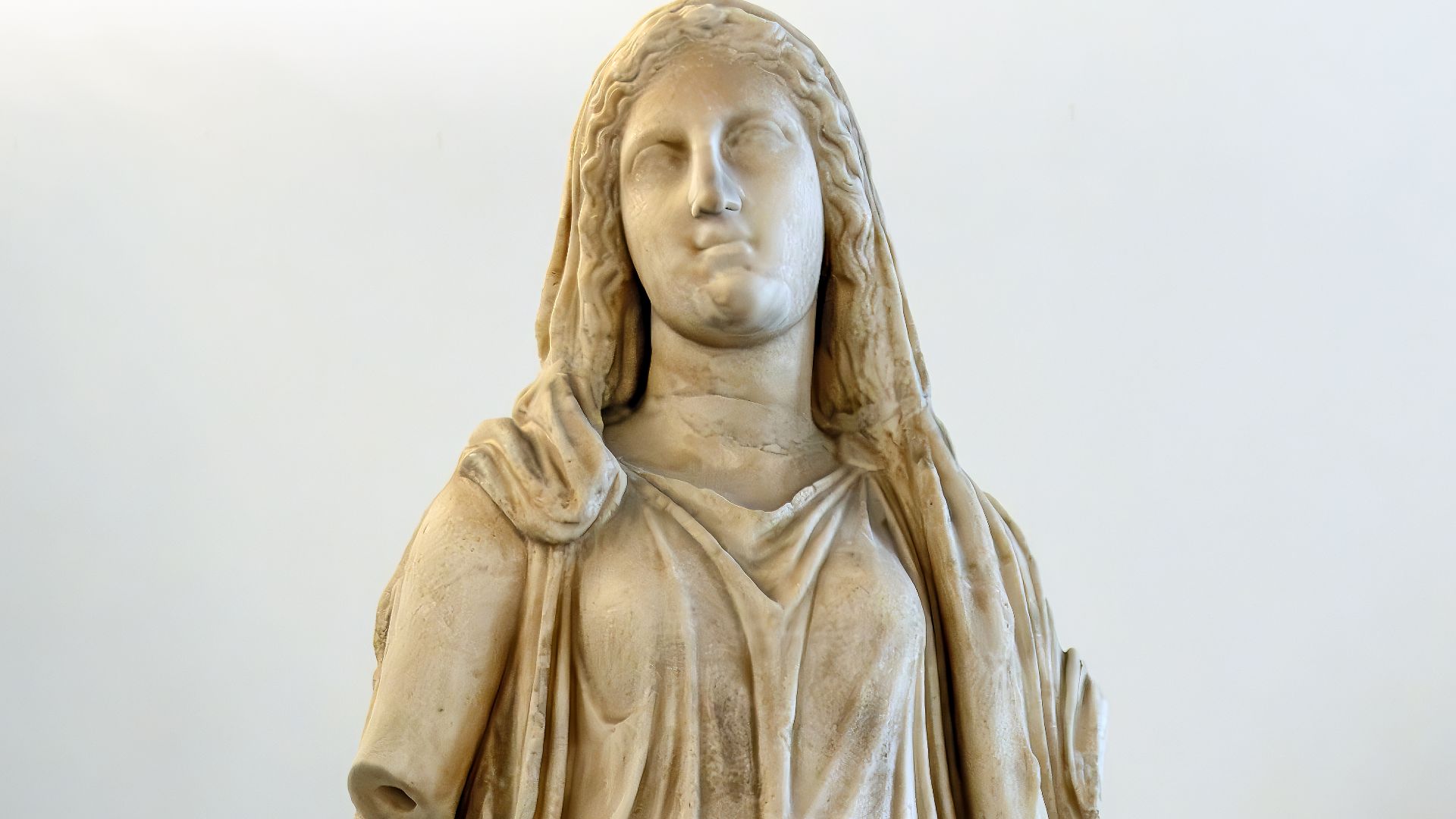By Jove, That's A Lot Of Gods!
How many Roman gods & goddesses do you know? It's probably more than you think, if you can name the planets. The Romans had 67 major gods, borrowing from other religions and giving them a Roman facelift. Some will be familiar, while others are entirely Roman inventions. How many names do you recognize?
1. Jupiter
The big man at the top, Jupiter was the king of the gods, Rome's equivalent to Zeus. Like Zeus, Jupiter ruled over the heavens and was associated with thunderbolts and eagles. Unlike free-wheeling, chaotic Zeus, however, Jupiter was more faithful to his wife and was associated with justice.
 Jean-Pol GRANDMONT on Wikimedia
Jean-Pol GRANDMONT on Wikimedia
2. Juno
The patron goddess of Rome and queen of the gods, Juno is the Roman equivalent of Hera. Both goddesses were patrons of marriage, motherhood, and childbirth, but that's where the similarities end. The protector of the Roman state, Juno was more warlike than jealous Hera, and is often depicted armed and dangerous.
 Boston Public Library on Unsplash
Boston Public Library on Unsplash
3. Minerva
The goddess of a thousand works, Minerva is multifaceted like her Greek counterpart, Athena. In addition to martial strategy, Minerva was also the goddess of wisdom, weaving, medicine, and commerce. She, along with Jupiter and Juno made up the Capitoline Triad, the big three in the Roman pantheon.
4. Neptune
Neptune's story closely resembles that of Poseidon; both were gods of seas, storms, and horses. However, Neptune gets further inland that Poseidon, with his patronage extending to freshwater. When you think about how important the river Tiber was to the Romans, it's no wonder they prayed for a little extra help.
5. Mars
One of the most unpopular gods in the pantheon, Mars was also one of the most important. Much like Ares, Mars was the god of warfare, particularly the blood-thirsty side of war, which he used to secure peace. Mars was also the father of Romulus and Remus; one brother founded Rome, and the other...well...there's a reason the city isn't called Reme.
6. Venus
Juno may have been the goddess of motherhood, but Venus represented the more carnal side of womanhood: beauty, desire, and fertility. Like her Greek counterpart, Aphrodite, Venus was one of the most popular gods, but maybe not for the reason you think. In the Iliad, Venus/Aphrodite was the mother of Aeneas; after the fall of troy, Aeneas went on to found Rome in the Aeneid. Thus, Venus and Mars's love affair reconciles Rome's two foundation myths.
 Livioandronico2013 on Wikimedia
Livioandronico2013 on Wikimedia
7. Apollo
Apollo is the least-changed of all the gods who were originally Greek—right down to his name. The god of archery, prophecy, light and disease, Apollo could either deliver people from epidemics or bring them on with poisoned arrows. Apollo also invented stringed instruments, so we have him to thank for all the dudes who have ever played Wonderwall at house parties.
 Livioandronico2013 on Wikimedia
Livioandronico2013 on Wikimedia
8. Diana
Apollo and his twin sister, Diana, were as different as night and day—literally. The moonlight to Apollo's sunlight, Diana was the goddess of nature, chastity, and the hunt. She and her Greek counterpart, Artemis, are among the post popular patronesses for modern pagans.
9. Vulcan
No, Vulcan isn't the god of Star Trek. Rather, like Hephaestus, he controls volcanoes, fire, and the forge. An army is nothing without its weapons, and a bad fire can wipe out a whole year's worth of crops, so Vulcan is one god we wouldn't want to mess with.
 Bertel Thorvaldsen on Wikimedia
Bertel Thorvaldsen on Wikimedia
10. Vesta
Vesta was unique among the Roman gods, not because she's an original creation (she corresponds to Greek Hestia), but because she's more often depicted as a temple fire than a human. Protector of the home and hearth, Vesta was one of the most important gods for daily life. She even had her own order of priestesses tasked with tending to an eternal flame inside the Roman Forum.
11. Mercury
Swift-footed Mercury was one tricky god. The patron of boundaries, commerce, travelers and thieves, Mercury was also tasked with seeing souls to the underworld. Spooky! His Greek counterpart was Hermes, and we wouldn't trust either with out wallet!
 Jean-Baptiste Pigalle on Wikimedia
Jean-Baptiste Pigalle on Wikimedia
12. Ceres
Everyone say thank you Ceres for giving us grain to make bread. Like Greek Demeter, Ceres was a quiet and understated goddess who stuck to herself. Unlike her fellow deities, this harvest goddess tended to mind her own business—except when her daughter was concerned, as we shall see.
13. Proserpina
Speaking of Ceres, her daughter, Prosperina, was quite literally the reason for the seasons. When Proserpina was abducted by the god of the underworld, her mother fell into such a deep depression that the earth grew cold and the harvest withered. Prosperina's story is almost identical to Greek Persephone, however Proserpina was combined with the fertility goddess Libera, an entirely Roman invention.
14. Dis Pater
The only god to have two names, this gloomy guy gets a bad rap. Like Hades, Dis Pater is the god of the underworld, not the dead. Dis was originally associated with mineral wealth and agricultural fertility, and, since those minerals came from underground, the dead were included.
15. Liber
Now that we've covered some borrowed deities, let's move on to a few that were uniquely Roman, starting with Liber. Liber was the god of the plebians, the tax-paying farmers, craftsmen, and laborers. While Liber was tied to Greece's party-god Dionysus, Liber also represented freedom and civil disobediance.
16. Janus
Calling someone "two-faced" is an insult, but for this Roman god, it was factual Two-faced Janus was a god of transition: doors, gates, beginnings, and endings. He was worshipped before the city of Rome was even founded!
17. Bellona
How many war goddesses does one empire need? If it's the Roman Empire, at least two. Depicted as Mars's sister, wife, or charioteer, Bellona is more bloodthirsty than Minerva. Her temple was where the senate discussed war and received visitors.
18. Quirinus
Not much is known about Quirinus. The god of the Roman state, Quirinus was a bit of an odd duck. Some sources say he was originally a war god of the Sabines (a people who lived around Rome), others call him a deification of Rome's founder, Romulus.
 CarlosVdeHabsburgo on Wikimedia
CarlosVdeHabsburgo on Wikimedia
19. Sol
Later known as Sol Invictus, this sunny god always looked on the bright side. Sol was the god of sunlight and radiance; his cult was one of the most popular. In fact, the third century emperor Elagabalus tried to dethrone Jupiter place as chief god in favor of Sol...at least until his assassination.
 Unknown artistUnknown artist on Wikimedia
Unknown artistUnknown artist on Wikimedia
20. Pomona
The harvest goddess Pomona is unique among these gods because she was a wood nymph who became a goddess. Pomona is also unique because she has no clear counterpart in other mythologies, being the godess of orchard fruit. Depictions often show her carrying a platter or cornucopia filled with fruit.
KEEP ON READING

10 Historical Figures Who Were Surprisingly Funny & 10 Who…
Who From History Knew How To Work A Room?. History…
By Emilie Richardson-Dupuis Sep 25, 2025
10 Times Maps Lied to Us & 10 Times They…
Truth and Trickery in Maps . Old maps are as…
By Cameron Dick Sep 24, 2025
20 Most Villainous Women in History
History’s Wickedest Witches. When it comes to historical villains, gender…
By Farva Ivkovic Sep 24, 2025
20 Famous Figures Of The Middle Ages
Ye Olde Celebrities. Spanning roughly a thousand years from 500…
By Ashley Bast Sep 24, 2025
20 Facts About The Ice Ages You've Probably Never Heard…
Blue Sky Studios Missed A Few Things. Earth has been…
By Breanna Schnurr Sep 24, 2025
20 Blunders The Royal Family Wants You To Forget
Edward VIII's Abdication Rocked the World. Britain's Royal Family has…
By Rob Shapiro Sep 24, 2025













